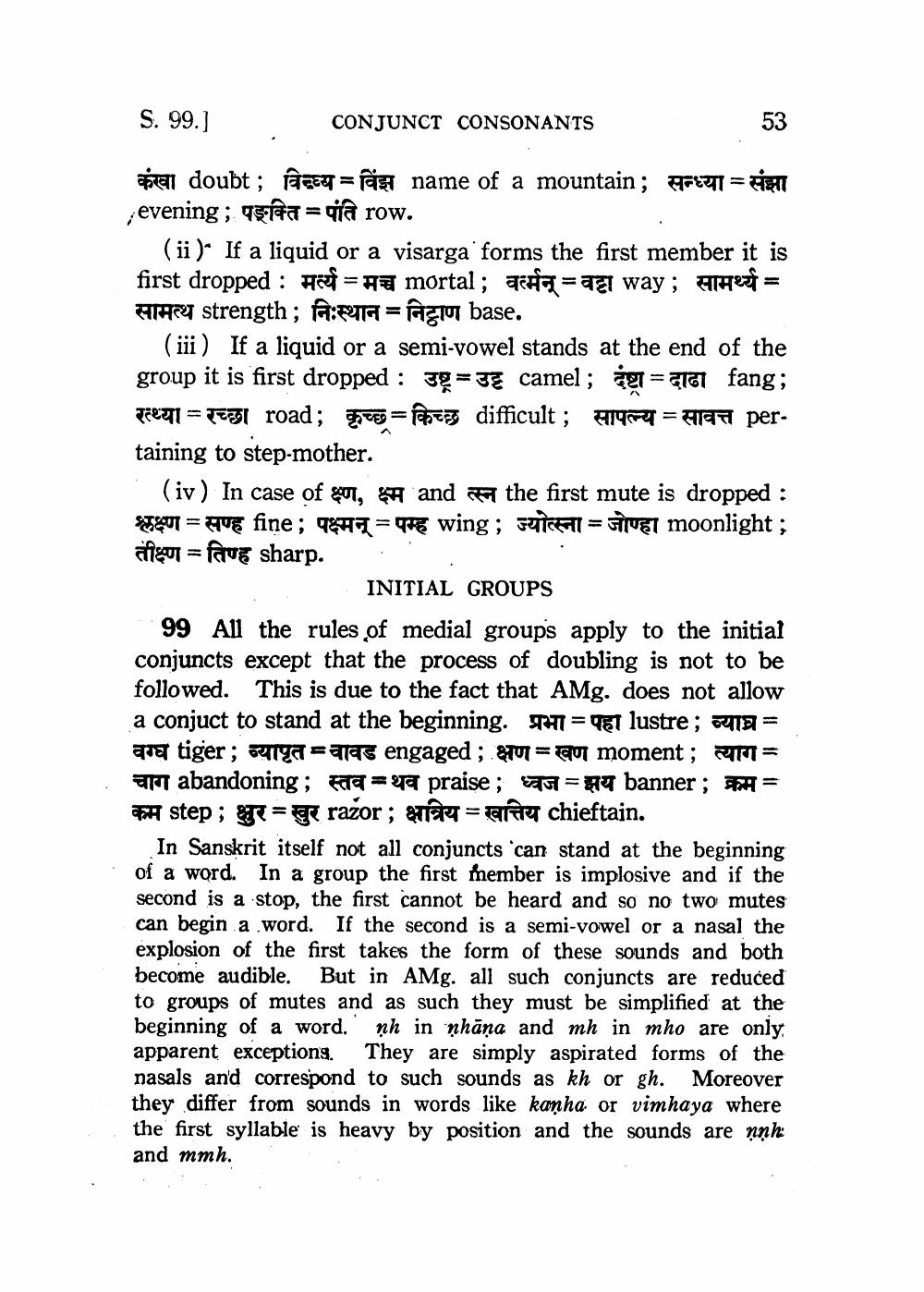________________
S. 99.]
CONJUNCT CONSONANTS
53
seal doubt ; asy = fäst name of a mountain; TRETI = FH evening ; पक्ति = पंति row.
(ii)" If a liquid or a visarga forms the first member it is first dropped : Hef=## mortal; achar al way; these = सामत्थ strength; निःस्थान = निट्ठाण base.
(iii) If a liquid or a semi-vowel stands at the end of the group it is first dropped : उष्ट्र = उट्ट camel ; दंष्ट्रा = दाढा fang; TEETI = Te road; te=fabe difficult; 144 = pertaining to step-mother.
(iv) In case of , and the first mute is dropped : stept = fue fine ; 947= wing ; JUTTGART = Fivel moonlight; aicut = ferua sharp.
INITIAL GROUPS 99 All the rules of medial groups apply to the initial conjuncts except that the process of doubling is not to be followed. This is due to the fact that AMg. does not allow a conjuct to stand at the beginning. प्रभा=पहा lustre; व्याघ्र = are tiger ; laats engaged ; Stu= au moment; = चाग abandoning; स्तव%थव praise; ध्वज=झय banner; क्रम कम step ; क्षुर = खुर razor; क्षत्रिय = खत्तिय chieftain.
In Sanskrit itself not all conjuncts can stand at the beginning of a word. In a group the first member is implosive and if the second is a stop, the first cannot be heard and so no two mutes can begin a word. If the second is a semi-vowel or a nasal the explosion of the first takes the form of these sounds and both become audible. But in AMg. all such conjuncts are reduced to groups of mutes and as such they must be simplified at the beginning of a word. ñh in nhāna and mh in mho are only apparent exceptions. They are simply aspirated forms of the nasals and correspond to such sounds as kh or gh. Moreover they differ from sounds in words like kanha or vimhaya where the first syllable is heavy by position and the sounds are nnh: and mmh.




